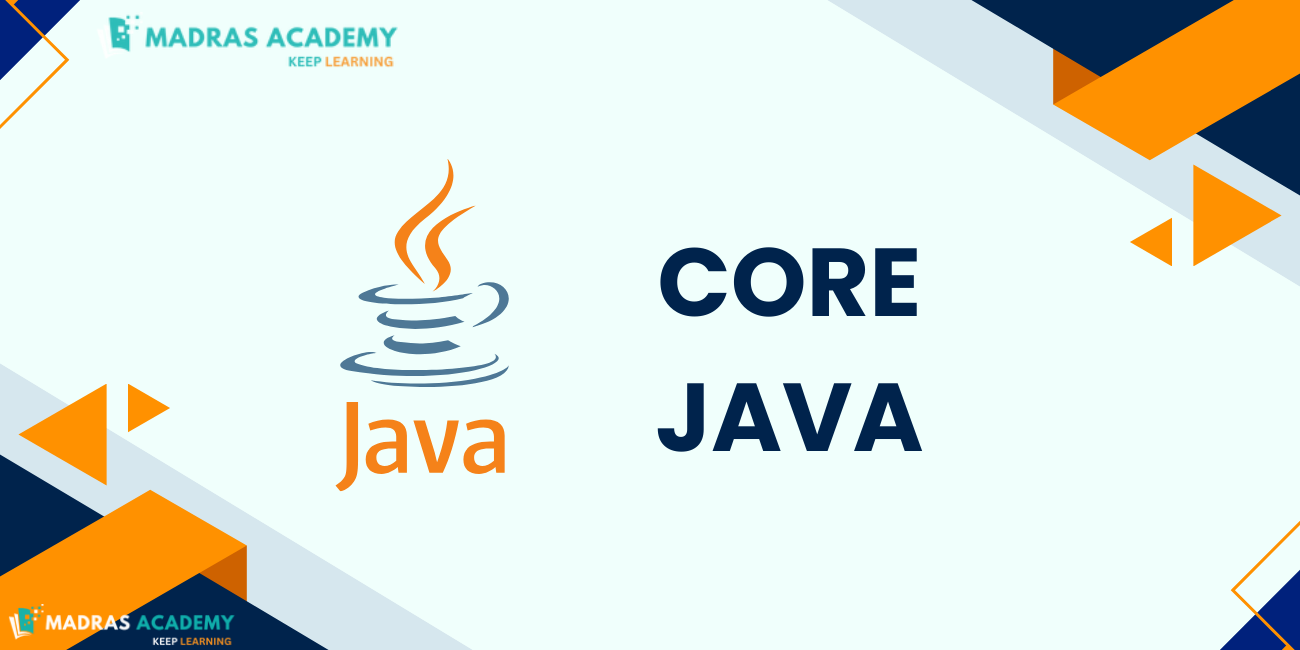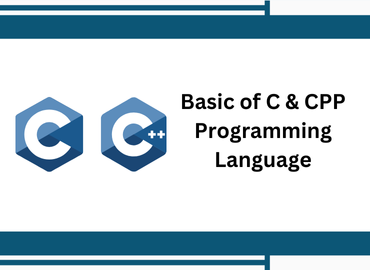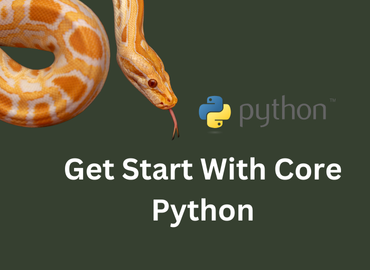Core Java Programming Course for Beginners

This course provides a solid foundation in Java, covering key topics like variables, functions, loops, control statements, exception handling, file handling, and multithreading. You’ll gain the skills needed to build Java applications and solve real-world problems.
The course covers essential topics like classes and objects, constructors, packages, and keywords, helping you develop a strong foundation in Java. You’ll also dive into advanced concepts such as exception handling, multithreading, and file management. Additionally, you’ll explore Java collections and learn how to create custom collection classes, giving you practical skills to tackle real-world Java programming challenges.
Course Information
This tutorial will help you master Core Java concepts, starting from the basics like setting up Java software and editors to advanced topics such as exception handling, threading, file handling, and working with collections. You’ll learn how to write and run Java programs, understand data types, operators, and control statements, and get hands-on experience with custom functions and arrays.
What Will You Learn?
This tutorial will help you learn Core Java concepts thoroughly, from data types and control statements to exception handling, threading, and file I/O. You’ll also explore advanced topics like custom functions and collections.
- Master the fundamentals of Java programming.
- Learn to create and manage classes and objects in Java.
- Learn to handle exceptions and use custom exceptions.
- Master multi-threading in Java, including both single and multi-threaded applications.
- Understand data types, operators, and control statements.
- Learn how to handle files with Java’s built-in classes.
- Understand and use Java collections framework (JCF).
- Gain hands-on experience with arrays and custom functions.
- Learn about keywords such as break, continue, and static blocks.
Requirements
This tutorial is designed for beginners in Java programming. No prior knowledge is required, but familiarity with basic programming concepts like variables and functions will help.
- Basic knowledge of C and C++ (recommended but not mandatory).
- A computer with Java installed.
- Willingness to learn and practice coding.
-
Introduction to JavaGet an overview of Java, its key features, and the Java technology stack. Understand why Java is widely used and its benefits for building cross-platform applications.
-
Setting Up Java Software and EditorsLearn how to install Java, set up the development environment, configure the Java path, and ensure the installation is successful. Familiarize yourself with the essential editors for Java development.
-
Classes, Functions, and Main MethodUnderstand the core concepts of classes and functions in Java. Learn how to create a main method, the entry point for Java programs, and use access specifiers and keywords like public, static, and void.
-
Data Types, Operators, and Static BlocksExplore Java’s primitive data types (int, float, boolean, etc.) and operators. Learn how to use static blocks for initializing class variables.
-
Control StatementsStudy Java’s control flow statements like if-else, switch-case, and looping constructs (for, while, do-while) to control the program flow.
-
Runtime Input and Scanner ClassUnderstand how to take runtime input from users using the Scanner class and handle command-line arguments to pass input data.
-
String Handling (Mutable & Immutable)Learn the difference between mutable and immutable strings in Java. Discover how to manipulate and work with strings efficiently.
-
Custom FunctionsLearn how to define and use custom functions in Java, both inside and outside of classes, to make your code modular and reusable.
-
Arrays and FunctionsExplore how to create, initialize, and use arrays in Java. Learn how to pass arrays to functions and manipulate them.
-
Introduction to Object-Oriented Programming (OOP)Dive into the principles of Object-Oriented Programming: understand the concepts of classes, objects, and constructors in Java to model real-world scenarios.
-
Inheritance and PolymorphismLearn how inheritance allows a class to inherit properties and behaviors from another class. Understand polymorphism, which enables methods to behave differently based on the object that invokes them.
-
Abstract Classes and InterfacesUnderstand the role of abstract classes and interfaces in Java. Learn how to define and implement abstract methods and interfaces to enforce abstraction in your code.
-
User-Defined PackagesUnderstand how to organize Java classes into packages for better code management. Learn how to create and use custom packages in your projects.
-
Exception HandlingStudy how to handle runtime errors in Java using try-catch blocks. Learn how to create custom exceptions and manage errors in a controlled manner.
-
File HandlingLearn how to read from and write to files in Java. Explore classes like FileReader, FileWriter, and BufferedReader to handle file operations.
-
Introduction to ThreadingUnderstand the basics of multithreading in Java. Learn how threads allow for concurrent execution of tasks, improving application performance and responsiveness.
-
Single-Thread and Multi-Thread ProgrammingExplore single-threaded and multi-threaded programming in Java. Learn how to manage predefined threads and create user-defined threads for multitasking.
-
Working with CollectionsLearn how to manipulate and interact with collections using Java’s interfaces and classes. Study methods for adding, removing, and accessing elements in collections.
-
Java Collections Framework (JCF)Get an introduction to the Java Collections Framework, which provides a set of classes and interfaces for managing groups of objects. Learn about commonly used collections like List, Set, and Map.
| Batch | Start Date | Timing | Days | Mode |
|---|


